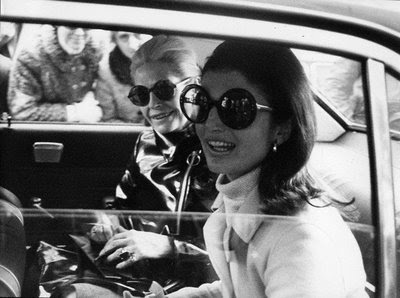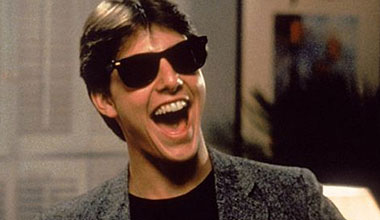In 1961, amidst the civil rights movement of America, the President of the day, John F. Kennedy official signed Executive Order 10925, which stated that any discrimination because of race, color, or creed goes against the principles of the US Constitution and is hence unlawful and wrong. This was the first act of the now called “affirmative action” which is a term that was first used by President Kennedy in a speech were he demanding “affirmation action to ensure that all applicants are employed, and treated as employees, without regard to race, color, or creed.” And of course this was a huge step in US history, later the Order would be changed to include women as well, as thus elimate all supposed biases against minorities. The sixties was a time of great turmoil in America with many minority groups, specifically the African Americans and Feminists, demanded that something be done to change the system which they firmly believed was biased towards white men, and in all honesty, most-likely was. It was probably true that employers, and also universities, made decisions on who to accept based on “old fashioned” ideas and stereotypes. Not to mention the resources available for different groups available growing up were widely unjust, where Caucasian boys were given many more opportunities than say their female counterparts who were usually assumed to simply become wives and mothers. There is no doubt that something had to be done to say, “even the playing field.” Minorities experienced incredible amounts of discrimination for generations so in order to make any progress in the realm of equality, positive, or affirmative actions had to take place to propel minorities into the so-called system.
As a result of these measures colleges and university felt a pressure to increase diversity in their schools. There was a large push to accept more ethnic minorities and women even if they were perhaps not at the same academic level as their previous, less-diverse, students. Still, this seemed like a good idea. Of course some of these minority members were not going to be as impressive as their white counterparts because of the discrimination they faced growing up and the only way to improve their social ranking would be to first give them a proper education at a good university. In addition, diverse schools expose students to a wide variety of people, cultures, and opinions, and many would argue that that enhances the college experience. Also, minorities of lower classes that were now able to attend better schools were being taken out of a poisonous inner city environment and instead left to better themselves with education. Many attribute the creation of the African-American middle class to the effects of affirmative action. Overall, affirmative action was seeming like a solid plan to promote general equality. Now having an ethnic background was no longer a disadvantage but rather a strong advantage since colleges were striving to be more diverse and not appear biased.
However, is this still not biased then? Are we not combating racism with just more racism? And is it fair to be choosing less impressive minorities for positions that a nonminority member worked extremely hard for? In a landmark Supreme Court case Grutter vs Bollinger a female college graduate of Michigan State was denied entrance to law school because of the universities emphasis on the importance of race, thus making a white female undesirable, which she claimed violated the 14th amendment. The Court ultimately ruled in favor of affirmative action but it did lead Michigan to join states like California and Washington which have officially banned affirmative action and the use of race or gender to influence acceptance. These states claim that affirmative action creates a sort of reverse racism as well as in counterproductive to equality. If the point of affirmative action was to eliminate race biases it seems to have failed. This chart illustrates that fact.
|
College Acceptance Rates (2005)[34]
|
|
Overall Acceptance Rate
|
Black Acceptance Rate
|
% Difference
|
|
Harvard
|
10.0%
|
16.7%
|
+ 67.0%
|
|
MIT
|
15.9%
|
31.6%
|
+ 98.7%
|
|
Brown
|
16.6%
|
26.3%
|
+ 58.4%
|
|
Penn
|
21.2%
|
30.1%
|
+ 42.0%
|
|
Georgetown
|
22.0%
|
30.7%
|
+ 39.5%
|
It doesn’t seem fair that non-minorities should be punished by the mistakes of their forefathers and now face their own discrimination in college acceptance. It also undermines the achievements of minorities since they must live with the stigma that they were helped by unfair biases in their favor.
In a place like University Park every day you encounter thousands of students coming from ethnic or racial backgrounds, and personally I think that is great. I think it’s great that I attend such a diverse university that accepts people from all around the world and I am able to meet so many intelligent, talented people that didn’t come from my background. However, I believe these people should have been accepted solely based on merit. I know when I was filling out forms I would check the “prefer to not specify” option under race because I think it is ridiculous a university would even ask that question. As part of the female minority I do believe that at a time the system worked so much in favor of white men that minorities did need a boost to help them move forward. However, now I believe, perhaps naively, that a lot of that discrimination is disappearing and I hope that my acceptance to Penn State was not to fill a quota of how many females to accept, but rather because they saw my potential as a student. Unfortunately it is true that many people don’t receive the best educations growing up and that puts them at a disadvantage but it does not seem fair to discriminate against those who were fortunate enough to go to good high schools. In additon acts of racial discrimination against minorities still happen everyday. In a study done results showed that even if race is not listed, schools will judge people based off of ethinic sounding names. It is definitely a complex issue and achieving a level of completely unbiased admissions to college will be difficutl due to unfortunate harmful sterotypes but if we want equality we have to start by treating everyone equally.








 <– Hipster Hunk
<– Hipster Hunk <– Girl that thinks she’s deep because of her glasses and ridiculously expensive camera
<– Girl that thinks she’s deep because of her glasses and ridiculously expensive camera